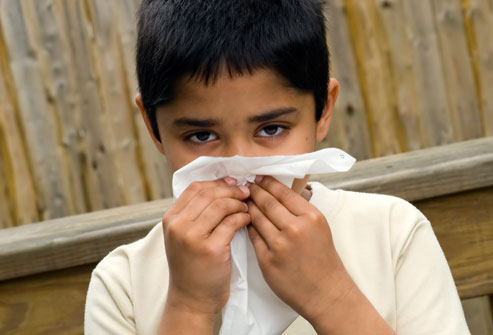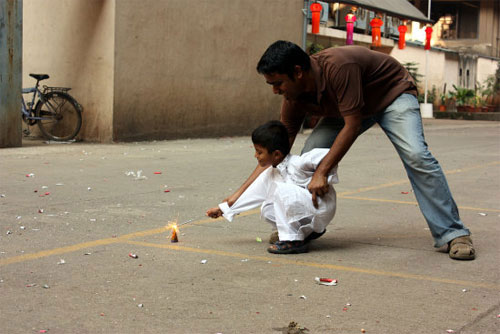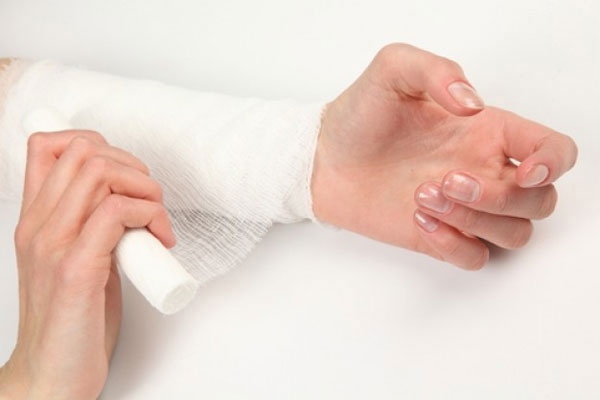Many of us are faced with nose problems. Here are the ways to treat nose bleeding, blocked nose, catarrh and running nose.Nosebleed
Nosebleed or epistaxis is an acute haemorrhage from the nostril, nasal cavity, or nasopharynx. It is one of the common nose problems in children. It is a frequent emergency department (ED) complaint and often causes significant anxiety in mothers. Nosebleed is usually mild and very common in children from 3 to 10 years of age. Every child suffers from nosebleed at least once in their life time and usually it subsides on its own. However, recurrent episodes can be a sign of an underlying disorder which needs evaluation.
Why does a nosebleed occur in children?
Our nasal area is supplied by small blood vessels which are thin and have a very fragile lining. Whenever our nose is exposed to any trauma – physical or mental; it causes the lining of the nose to break easily leading to a nosebleed.
How do I know if my child has a nosebleed?
Nosebleed in children can be scary and cause panic alarm in parents. Bleeding from the nose can range from a few drops to a heavy flow of blood which can be life threatening. A proper detailed case history of the child and a thorough physical examination can help in arriving at the probable diagnosis.
How to deal with nosebleed in children?
Nosebleed is caused by damage to blood vessels located close to the surface of the
skin. If your baby's nose begins to bleed, keep her in an upright position or leaning forward slightly. Keep her head down. Never keep it upright or tip it back. This could cause the blood to flow back into the stomach and make her vomit. Calm her down and try to stop her from crying as that increases the blood flow. Pinch her nostrils between your thumb and index finger for 5 to 10 minutes. This will make her breathe from the mouth. If she continues to bleed, pack the bleeding nostril with absorbent cotton and apply a cold compress.
When to seek medical care?
Consult your doctor immediately if you note the following in your child:
- Bleeding is profuse, heavy especially after a fall
- Foreign body inside the nose
- If bleeding does not stop after 30 minutes of first aid
- Bleeding noted from other orifices in the body
- If your child feels dizzy or has a fainting episode
How to prevent nosebleed in children?
Adopting simple preventive measures in your daily life can help preventing a nosebleed.
- Keep your home warm and humidified during cold and winter seasons.
- Always use a nasal spray or saline gel for your child at bed time during dry climate as this will keep the nasal mucosa moist.
- Avoid habits like picking and boring at the nose constantly, forceful blowing of nose etc. in children by engaging them in other activities which will divert their attention.
- Trim your child’s nails regularly and keep them short in order to avoid injuries from nose picking.
- Do not hesitate to consult the doctor however trivial your child’s complaints may be.
Catarrh and runny nose
Catarrh that continues for more than four or five days or a chronic runny nose is not normal. It is a sign that your child may have a chronic infection of the nose and throat or chronic sinusitis. You will have to consult your doctor, as the treatment will require the use of antibiotics.
Blocked Nose
Blocked nose is one of the common symptoms of
cold in children. Blocked nose may cause a lot of trouble to the child. It may cause difficulty in breathing. It is mainly caused due to swelling in the blood vessels in the sinuses due to cold. The swelling causes mucous secretion to increase resulting in blocked nose. Blocked nose can be very troublesome to small children. Therefore, it is a must to consult a doctor immediately.
When you observe any kind of nose problems in your child, you must never give any over-the-counter medicine. It can be risky to give over-the-counter medicine to your child.































